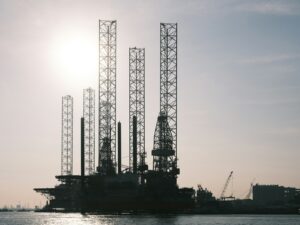Technology to develop offshore wind farms could outpace legislation
Offshore wind on the high seas could expand energy capacity by 450GW by 2050, but a lack of legal framework means that it is currently too risky for companies to invest, a law firm has warned.
In a new report, Chatham Partners has warned the current legal framework does not have scope to cover this development on the high seas.
The report argues there is uncertainty around the right of use, ownership, and jurisdiction of the high seas.
The high seas are all regions of the sea that lie outside the control of a single nation.
They make up 50% of the surface area of the planet and cover over two-thirds of the oceans.
The report claims building on the high seas could drastically increase offshore wind capacity by adding almost 70% more construction space.
Building close to shore in an Exclusive Economic Zone means that the relevant state has the right to govern and authorise installation and operations of a wind farm under national laws, but no such jurisdiction exists for the high seas.
But the lack of clear rules would make it too risky for any company to invest in.
The report states that the industry should call for discussions to form a robust legal framework now, or they risk missing the opportunities that the high seas offer for future development.
Felix Fischer, partner at Chatham Partners said: ‘Currently, offshore wind developers are only able to consider a third of the available sea when planning new sites.
‘The high seas could have the potential to further unlock the expansion of offshore wind beyond what can be developed along coastlines if the industry deems it feasible from an economic and technical perspective.
‘However, the technology to allow development in these areas could outpace the legislation,’ he added.
‘Without a legal framework, these sites will remain out of reach for developers for decades to come.
‘If the high seas should become part of the answer to expanding offshore wind development and continue to global decarbonisation, building a viable legal framework is critical.’
Photo Credit – Pixabay















